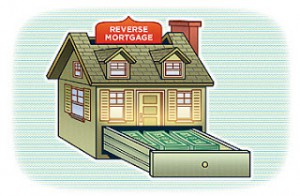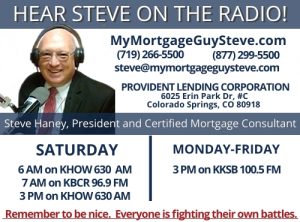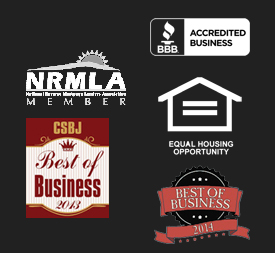A Reverse Mortgage Loan
A reverse mortgage is a home loan that lets homeowners convert a portion of the equity in their homes into cash. The equity they have built up over years of mortgage payments can now be paid back to the Colorado homeowner in cash. Unlike a traditional mortgage or a second mortgage, no repayment is required until the borrower(s) no longer live in the home as their principal residence, or do not pay the required property taxes or homeowners insurance. Most people who obtain a Colorado Reverse Mortgages stay in their homes without ever having to make another house payment.
To be Eligible
To be eligible for a Reverse Mortgage, the Federal Housing Administration (FHA) requires that all non-married homeowners are at least 62 years of age. Only one spouse needs to be 62-years-old. Their Colorado home can either be owned outright, or have a mortgage with a low enough balance that it can be paid off at the closing with proceeds from the Colorado Reverse Mortgage. The reverse mortgage loan can only be taken out on an owner-occupied home, not a rental or vacation home.
The Amount You Can Borrow
The amount you can borrow depends on several factors, including: on your age, credit, income, current loan balance, interest rates and the appraised value of your Colorado home, the FHA’s mortgage limits for your area (whichever is less). Generally, the more valuable your Colorado home and the older you are, the more you can borrow.
What is a Reverse Mortgage?
The Federal government’s Federal Housing Administration (FHA) created this program in 1987 as tool to help seniors stay in their homes. Since that time, regulations have made the loans even more friendly. As long as all rules are followed, Colorado Reverse Mortgages are a way for older homeowners to convert the equity in their homes into cash without ever having to make monthly payments.
Here are the basics:
- You always maintain ownership of your home.
- One spouse of married homeowners must be 62-years-old or older. Unmarried homeowners must both be at least 62-years-old.
- Homeowners can choose to receive money either on a monthly basis, in a lump sum, or as a line of credit.
- No minimum credit scores (FICO) scores are required, but overall credit will be evaluated.
- Social Security and Medicare benefits are generally not affected*.
- When the last home owner dies or permanently leaves the home, the estate has 1 year to pay off the reverse mortgage loan. When the loan is paid in full, any equity left over will be distributed to your heirs or the estate.
* consult your financial advisor for your specific situation.
Keep in mind:
Colorado Reverse Mortgage borrowers continue to own their homes. The bank never takes title to the property as long as all rules of the loan are followed. Because there are no monthly loan payments, the amount owed on the loan grows over time. Banks are not charities. They don’t loan money for free. The interest that they charge you is simply added to your loan balance every month.
Borrowers must continue to live on the property, and pay homeowner’s insurance & property taxes during the loan period, and comply with all other specified loan terms. It is also the borrower’s responsibility to keep up with home repairs. In fact, if a borrower fails to adhere to any of these obligations, it may cause the loan to become due and payable in full.
Does my home qualify for a Colorado reverse mortgage?
First of all, your residence must meet HUD standards. Basically, it will need to be safe, sound and sanitary. A full FHA appraisal will need to be done before closing. If there are one or more mortgages or liens on the property, all of them will need to be paid off with the proceeds of the reverse mortgage.
FHA uses a formula to determine the amount of your reverse mortgage. Call Steve at: (719) 266-5500 to get more details.
How is the reverse mortgage loan amount determined?
The amount of the loan is based on FHA formulas, and may include:
- The age of the youngest borrower
- The appraised value of the property
- Current loan balances
- Other miscellaneous requirements
What options are there for receiving the money?
HECM offers 4 draw options:
- Monthly income for a fixed term or life
- Line of credit
- Lump sum
- Any combination of the above 3
















